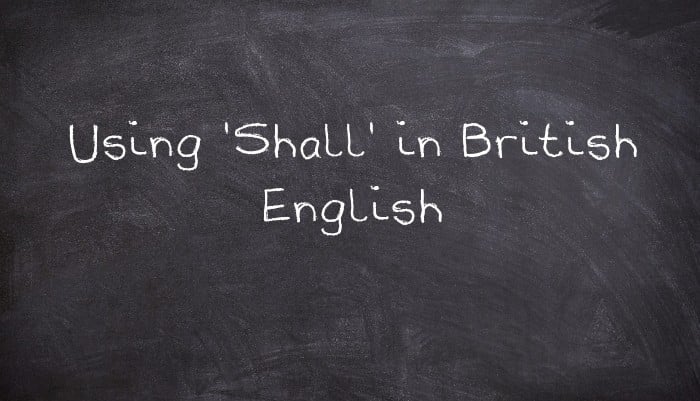I shall & we shall
Traditionally, the modal verb shall could be used with the first person singular (I) and plural (we) instead of will in British English. This is still true, but it is becoming less and less common in everyday language, though it is still reasonably common in formal language. It can be found in a lot of formal writing and can be used in formal spoken language- after a disaster, say, politicians may be heard using it to add a tone of seriousness to the talk.
Using shall in questions
Shall is often used in questions.
Asking for advice:
When asking for advice, shall can be used:
What shall I do about it?
Making suggestions:
Shall we... is a common way of making a suggestion:
Shall we stop now?
A common answer to this would be "Yes, let's.", rather than "Yes, we shall."
Shall for emphasis
Shall can be used to emphasise the force of a speaker's feeling about something:
'I won't do it.'
'Oh yes, you shall.'
This form is often used when people are angry- an angry parent might use this form with a stubborn and uncooperative child, for instance.
- The contracted form of the negative is shan't.
- Shall is rarely used in American English.
